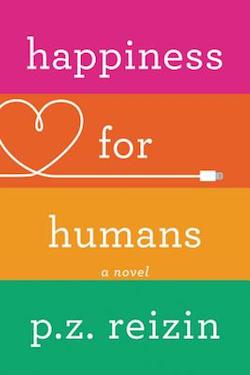Siri, find me a date

Last week, I listened to the audio book version of Happiness for Humans, a novel by British author P. Z. Reizin. The novel's a romantic comedy set-up is a relatively twist on the matchmaker genre: an artificial intelligence begins to secretly set up Jen, its human trainer, on dates.
Eventually the AI, which is named Aiden, begins to develop emotions. It becomes heavily invested in Jen's happiness, and then a cast of artificial intelligences — some of them malicious — begin to meddle with the experiement. It all feels a little bit like a play where capricious gods toy with humans for their own amusement, only to receive their comeuppance in the end.
Happiness for Humans was exactly what I needed. After a long summer of depressing news, I wanted to listen to a story that was funny and cute. But all the way through, I felt a particular unease with the concept of, basically, a Siri or Alexa toying with human behavior. Because, uh, Siri and Alexa are already toying with human behavior, and the end results are nothing like a rom-com.
Fiction about AI tends to come in two flavors: either the technology is malicious and it wants to take over the world; or it's cute and friendly and British and a little bit too proper, like C-3P0. Happiness tries to do a little of both, but it mostly leans on the adorable British side of things. I'd love to read a novel that addresses the idea of artificial consciousness in a contemporary setting in a way that adds nuance and complexity to the situation.
Of course, it's impossible to track every trend in publishing; maybe the AI novel I'm describing already exists. But for right now, the closest thing to a complicated AI story that I've seen in recent years is Spike Jonze's splendid Her. Happiness for Humans doesn't come close to Her's level of artistry and curiosity. Unlike Aiden, the literary consideration of implications is still waiting to take the next evolutionary leap forward.